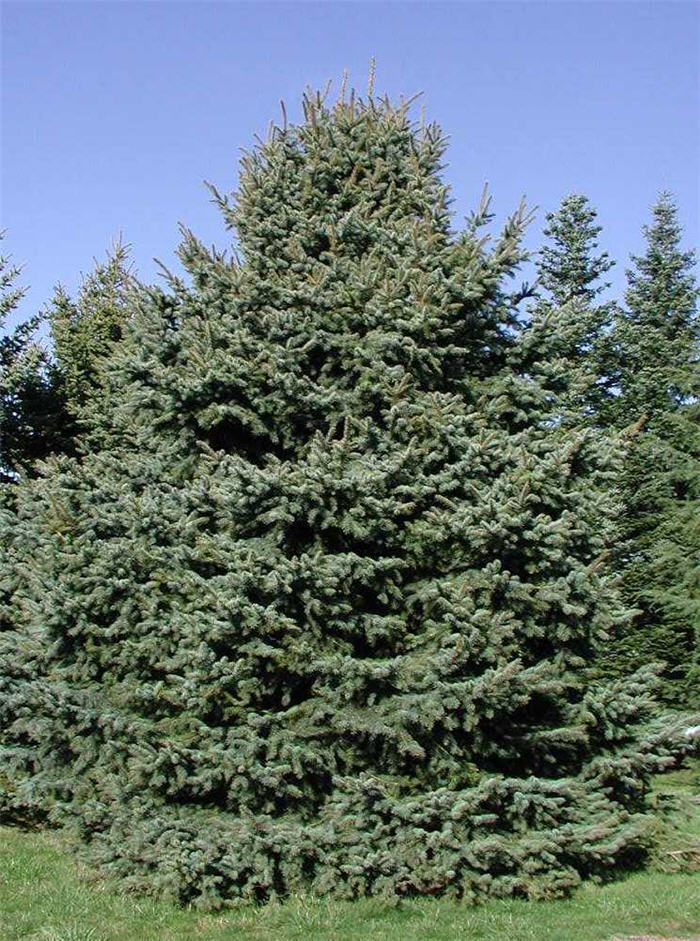| Botanical Name: Picea pungens | |
| Common Name: Colorado Spruce |

-
Anatomy
-
Culture
-
Design
Plant Type
Tree, Conifer
Height Range
40-60', 60-100'
Flower Color
n/a
Flower Season
n/a
Leaf Color
Green, Blue Green, Grey Green
Bark Color
Grey
Fruit Color
Brown
Fruit Season
Winter, Fall
Sun
Full
Water
Medium
Growth Rate
Slow
Soil Type
Sandy, Clay, Loam, Rocky
Soil Condition
Average, Rich, Poor, Well-drained, Dry
Soil pH
Acid, Neutral, Basic
Adverse Factors
n/a
Design Styles
Formal, Meadow, Woodland
Accenting Features
Specimen, Unusual Foliage
Seasonal Interest
Winter
Location Uses
Background, Lawn, Park
Special Uses
Screen
Attracts Wildlife
Birds
Information by: Stephanie Duer
Photographer: Steve Mullany
Photographer: Steve Mullany
-
Description
-
Notes
Colorado Spruce is an upright to pyramidal evergreen tree with a dense form and horizontal branches. It grows slowly, 60 to 80 feet tall and 20 to 30 feet wide. Its color is variable, ranging from sky blue to green. s to 100' tall. It has a wide-spreading, moderately deep root system if not overwaterred. A Utah native.
Grow in well drained soil in full sun. The biggest mistake folks make when planting Colorado Spruce is not giving it the room it needs. Invariably, it gets crammed into some corner, or planted next to the drive or walkway, and then needs to be sheared or pruned to get around. Give it room, and it will grow to be a lovely specimen and for a lot less effort on your part.